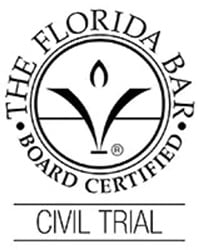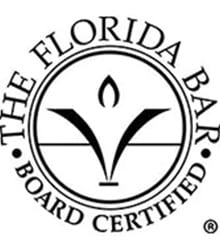Key Takeaways
- Hospitals often opt for out-of-court settlements to minimize costs, maintain their reputation, and expedite dispute resolution.
- The settlement process in medical malpractice cases includes initial consultations, evidence collection, negotiations, and often results in agreements regarding compensation and confidentiality.
- Only about 7% of medical malpractice claims go to trial, with many victims preferring settlements due to the uncertainties and expenses associated with the trial process.
Why Hospitals Settle Out of Court
Hospitals frequently settle out of court to avoid lengthy legal battles, reduce costs, and safeguard their reputation, as hospitals prefer to resolve issues efficiently. Legal battles are time-consuming and financially draining, making settlement a more viable option.
Hospitals are conscious of their public image and aim to maintain a positive reputation. Reasons for settling out of court include:
- Prolonged court cases can attract negative media attention, especially if there is a history of similar claims.
- Settling out of court allows hospitals to manage disputes more discreetly.
- It enables hospitals to control the narrative.
Settlements provide a quicker resolution for both hospitals and patients. This expedited process allows hospitals to manage compensation and move forward without trial uncertainties. For patients, it means faster financial relief to cover medical expenses and other costs without the prolonged stress of a courtroom battle.

Hurt or Lose a Loved one to Medical Malpractice? Let Us Help You
Hurt or Lose a Loved one to Medical Malpractice? Let Us Help You
Get your FREE & confidential case review todayThe Settlement Process in Medical Malpractice Cases
Grasping the settlement process in medical malpractice cases is vital for anyone considering legal action. It starts with:
- An initial consultation and case evaluation to assess the claim’s viability.
- Reviewing medical records.
- Consulting with medical professionals to determine if actions that constitute medical malpractice occurred.
If the case is deemed viable, a lawsuit is filed against the hospital or healthcare provider, formalizing the legal action and initiating the discovery phase. During this phase, both parties present evidence, including medical records, witness testimonies, and expert opinions, to build a strong case.
Negotiations with hospital representatives seek to reach a fair agreement, often involving multiple offers and counteroffers as both sides strive for common ground. Many malpractice cases settle during or after the discovery phase, making it a crucial period for both parties.
Settlement agreements usually cover compensation amounts, confidentiality clauses, and specific terms for resolving the case. Factors influencing these amounts include injury severity, evidence clarity, medical expenses, lost wages, and insurance coverage. Understanding these nuances can help navigate the process and achieve a fair settlement.

Medical Treatment Gone Wrong? Let Us Help You
Medical Treatment Gone Wrong? Let Us Help You
Get your FREE & confidential case review todayFactors Influencing Settlement Amounts

The clarity and strength of the evidence significantly influence settlement negotiations. Strong evidence demonstrating medical negligence can lead to higher compensation, while weak or ambiguous evidence may result in lower offers.
Medical expenses, including ongoing and future costs, significantly influence the total settlement figure. Lost wages due to injury add to the compensation sought, ensuring victims are covered for income lost during recovery, especially in cases involving catastrophic injuries.
Insurance coverage often plays a critical role in determining settlement outcomes, affecting the hospital’s willingness and ability to pay. Victims should receive financial compensation for various damages, including pain and suffering, lost wages, and medical bills.
When Settlements Fail: What Happens Next?
When settlements fail, the case goes to trial, a process that can be lengthy, complex, and costly. The trial begins with jury selection, followed by opening statements. Both parties present their evidence and witness testimonies, aiming to convince the jury.
Trials can last several months to over a year before a final verdict is reached. Judges or juries ultimately decide the outcome, which can result in damages awarded to the plaintiff or a finding in favor of the defendant. The plaintiff’s case is supported by legal representatives who aim to prove negligence by medical professionals, while the defendant’s team may argue that the standard of care was met during lengthy legal proceedings.
Despite the potential for a favorable verdict, the trial process is often a last resort due to its complexity and the significant resources required. This is why most medical malpractice cases settle out of court, avoiding trial uncertainty and burden.
How Often Do Medical Malpractice Cases Go to Trial?
Only around 7% of medical malpractice claims proceed to trial, indicating a significant preference for out-of-court settlements. The vast majority of cases settle out of court, reflecting the preference of both hospitals and plaintiffs for a quicker, less costly resolution in medical malpractice lawsuits.
When cases go to trial, the case’s outcome can be uncertain:
- The plaintiff’s win rate in trials with strong evidence of negligence can drop to as low as 50%.
- Physicians win a significant majority of jury trials when the evidence of a medical professional’s negligence is weak, with win rates ranging from 80% to 90%.
- When medical care is viewed as proper, physicians win 91% of trials.
This data underscores why many opt for settlements. The unpredictability of trial outcomes and the potential for no payment in toss-up cases—approximately 40% of such cases do not result in any payment—make settling out of court a more attractive option in similar circumstances, including alternative dispute resolution methods.
Maximizing Your Settlement: Tips and Strategies
Maximizing your settlement in a medical malpractice case involves several strategic steps:
- Hiring an experienced medical malpractice attorney is essential.
- These professionals understand case nuances.
- They provide quality legal representation.
- This significantly increases your chances of success.
Gathering strong evidence is crucial. Detailed medical records, expert testimonies, and clear documentation of medical negligence can bolster your case. Additionally, understanding and accounting for long-term medical expenses, such as future treatments and ongoing care, can ensure higher compensation.
Being prepared to negotiate is essential. Hospitals often settle out of court to maintain their image and prevent damaging allegations from becoming public, which is why they may consult with their legal team. Following these tips can improve your chances of achieving the best possible outcome, including maximum compensation for medical costs, lost wages, and damages.
| Before accepting a hospital’s initial settlement offer, consider taking the following steps: | |
|---|---|
| Step | Guidance |
| 1 | Consult with Zoeller Law and their medical malpractice attorneys. |
| 2 | Understand that initial offers from hospitals are often lower than what is reasonably owed, as they aim to protect their financial interests. |
| 3 | Have an experienced attorney like Zoeller Law help evaluate fair compensation. |
| 4 | Use Zoeller Law’s negotiation skills to improve the settlement offer. |
| 5 | Learn about your legal rights. |
| Source: ZoellerLaw.com — Zoeller Law (Zoeller Hayden Thorn) | |
Patients should consider long-term medical expenses and future medical expenses that may not be immediately apparent when negotiating a settlement. Being informed and prepared before making a decision ensures fair compensation.

Hurt or Lose a Loved one to Medical Malpractice? Let Us Help You
Hurt or Lose a Loved one to Medical Malpractice? Let Us Help You
Get your FREE & confidential case review todayCall Our Law Firm for a Free Consultation
If you or a loved one has been a victim of medical malpractice, Zoeller, Hayden & Thron offer a free case evaluation to help you understand your legal options. Contact us via phone, email, or online form and let our experienced attorneys guide you through the process.
Our team aims to make the initial consultation process convenient, responding quickly to inquiries and accommodating client preferences. We will review your medical records and consult with medical experts if necessary to evaluate whether the medical procedure you received fell below accepted standards in terms of reputation management and healthcare providers, including your medical provider, other healthcare providers, healthcare professionals, and medical providers, all backed by our proven track record.
Additionally, we understand the importance of the doctor-patient relationship in providing quality care. If a provider breached confidentiality, it could impact your case, especially in instances of medication errors.
Frequently Asked Questions
Why do hospitals usually settle out of court?
Hospitals typically settle out of court to avoid the high expenses and prolonged duration of legal disputes, while also safeguarding their reputation. This approach allows them to reach a resolution more efficiently.
What is the first step in the settlement process for a medical malpractice case?
The first step in the settlement process for a medical malpractice case is to conduct an initial consultation and case evaluation to determine the viability of the claim. This assessment is crucial for understanding the potential for a successful resolution.
What factors influence the settlement amounts in medical malpractice cases?
Settlement amounts in medical malpractice cases are influenced by the severity of the injury, clarity of evidence, medical expenses, lost wages, and insurance coverage. These factors collectively determine the compensation that may be awarded.
What happens if a settlement cannot be reached in a medical malpractice case?
If a settlement cannot be reached in a medical malpractice case, the matter will proceed to trial, where a jury will be involved in jury selection, opening statements, witness examinations, and ultimately delivering a verdict.
How often do medical malpractice cases go to trial?
Medical malpractice cases rarely go to trial, with only about 7% proceeding to that stage, as the majority are settled out of court.
Related Articles












